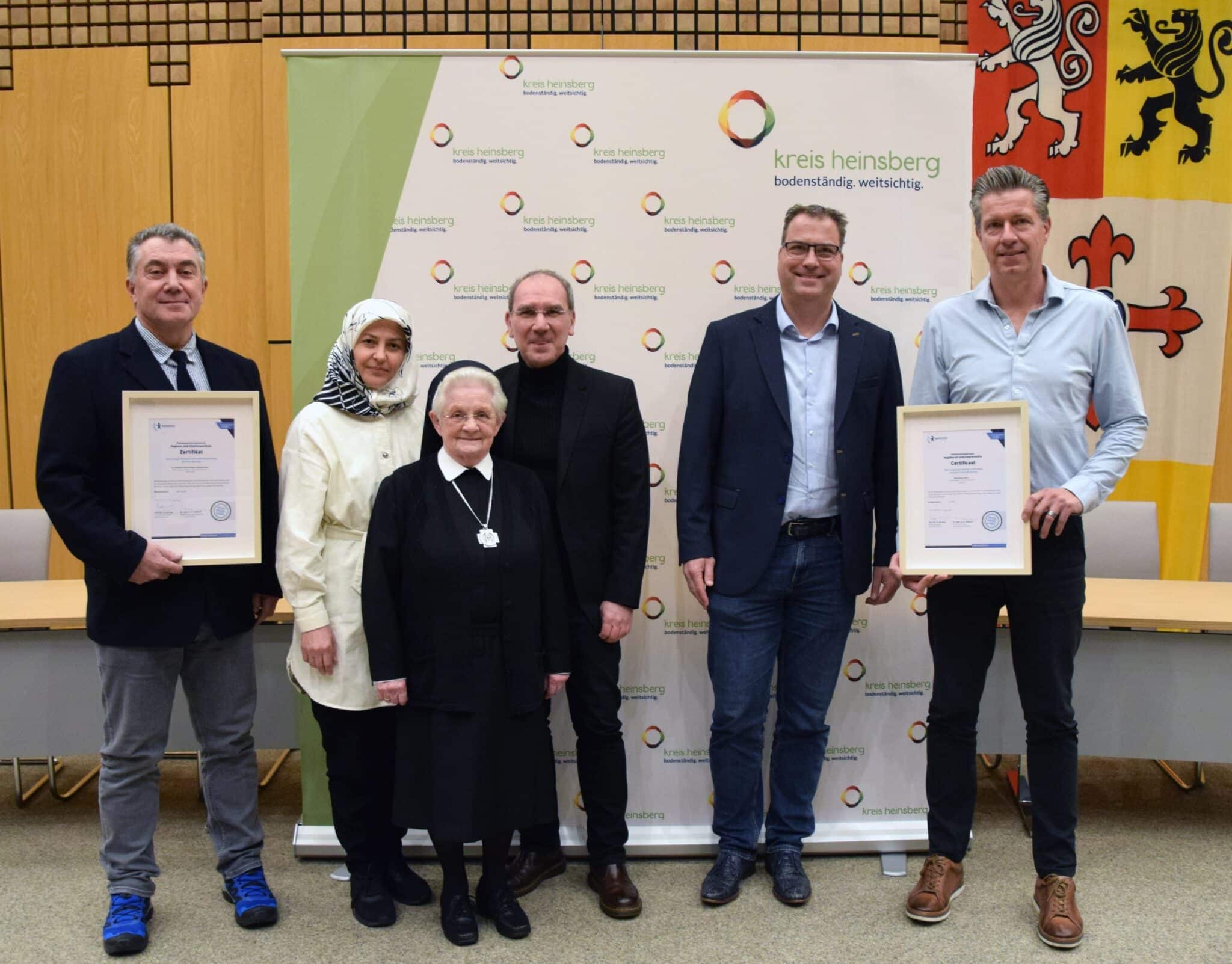Cross-border infection protection sealed
December 7, 2023

Heinsberg – The experiences of recent years have made us all realise how important the topic of infection control is and how important euregional cooperation in the border regions is in this context. The relevant stakeholders in the Euroregions Meuse-Rhine and Rhine-Meuse-North are continuing to tackle this challenge together.
For this reason, the partner meeting of the “Infectious Diseases” programme line organised by the euPrevent Foundation took place on 6 December 2023 in the small conference room of the Heinsberg district administration. Representatives of various healthcare organisations and hospitals from the districts of Heinsberg, Düren and Viersen as well as the Rhine district of Neuss and the city of Mönchengladbach were present. Representatives from the Dutch Public Health Service of the Province of South Limburg (GGD Zuid Limburg) and the University Medical Centre Maastricht (UMC+ Maastricht) also took part in the event, both of which are also members of the Antibiotic Stewardship Network of the Dutch Province of Limburg (LINK). The Belgian part of the Euroregion Meuse-Rhine (EMR) was represented by a representative of the national research institute (Sciensano). The aim of this event was to continue and expand the stable network in the field of infection prevention by clarifying the further procedure and future objectives.
The euPrevent Foundation supports cross-border cooperation between professionals and organisations in the field of public health in the border regions between the Netherlands, Germany and Belgium. Its tasks as part of the “Infectious Diseases” programme line also include auditing and the associated awarding of a quality seal to hospitals in the EMR.
Three hospitals from the EMR can once again prove that they continue to meet the challenges of infection prevention with bundled activities: on 6 December 2023, the euPrevent Foundation awarded the fourth hospital seal of approval to St. Elisabeth Hospital Geilenkirchen (Germany), Jessa Ziekenhuis Hasselt (Belgium) and Maastricht UMC+ (the Netherlands).
In order to receive the seal, the participating hospitals underwent an audit by experts. A total of ten criteria were assessed, which have now been adapted to the latest scientific findings with the fourth seal level. In addition to practical aspects such as compliance with cleaning and disinfection plans and hand hygiene, particular attention was paid to the (cross-border) exchange of knowledge. In the past pandemic years in particular, it has become clear that an exchange of expertise and information is essential in order to be able to offer citizens in border areas needs-based and reliable care. The seal is valid for three years.
“Our border region and the euPrevent network offer a unique opportunity to obtain international expertise in the shortest possible way and thus improve the quality of life of citizens in the long term,” emphasised Brigitte van der Zanden, Director of euPrevent, and praised the representatives of the participating hospitals who attended the award ceremony in the district administration of Heinsberg for their ongoing activities in this field.
The former head of the Heinsberg district health authority, Dr. Karl-Heinz Feldhoff, who placed particular emphasis on cross-border cooperation during his time in office, emphasised the importance of a uniform approach to infection protection for the citizens of our Euroregions.
